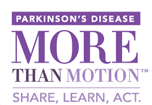
Things to Ask a Speech Language Pathologist
Speech-language pathologists like Heather Clark, Ph.D., can help Parkinson’s patients with common speech difficulties be heard and feel included. These specialists have an arsenal of behavioral therapies and communication technologies at their disposal for treatment, says Clark, chair of the Division of Speech Pathology in the Department of Neurology at the Mayo Clinic in Rochester, Minn. Here’s what that means for you.
Q. How do most Parkinson’s patients come to you for treatment?
A. The motor control problems associated with Parkinson’s can lead to a speech problem called hypokinetic dysarthria quiet breathy voice, monotone vocal quality and slurred speech. They may also experience dysphagia (difficulty swallowing). Not everyone gets these, and the timing varies.
Often a family member needs to voice a concern, or the physician can notice it during an exam, because the person with PD tends to be less aware of their speech difficulties than the people around them are. It’s not understood exactly why.
Q. Are speech issues important to catch early on?
A. Speech and swallowing therapy may be helpful even if symptoms are mild. I don’t think we know if any of the behavioral therapies we might recommend would help delay or prevent onset of symptoms.
Q. What can a speech-language pathologist do to help?
A. Symptoms often respond well to an exercise program that emphasizes increased effort, such as speaking more loudly or more intentionally. There are some other therapies that focus on specific or isolated muscle groups, such as the respiratory muscles.
Q. Are there any communications technologies you like?
A. Because a soft voice is one of the biggest complaints, some patients use a device that amplifies their voice through a speaker. There is also a kind of hearing aid that offers “delayed auditory feedback,” which can help PD patients automatically slow down and articulate more clearly. A newer technology delivers noise in the patient’s ear, prompting them to speak more loudly. It’s adjustable, so the clinician works with the patient to find a level that is tolerable but also effective.
TIP: Find help through the American Speech-Language-Hearing Association, asha.org
Originally printed in MoreThanMotion, Fall 2016.




